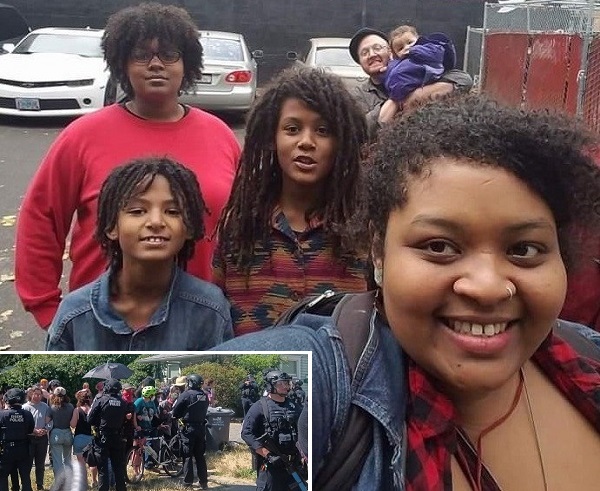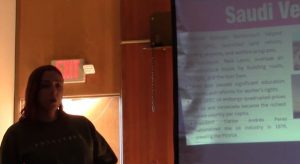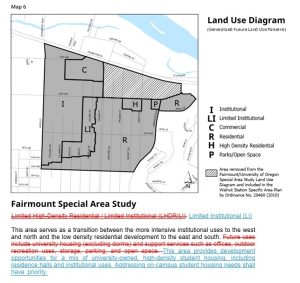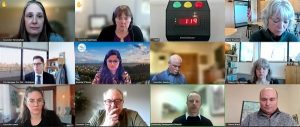Lane County judge denies renter request for reparations
4 min read
by DJ Suss D, KEPW News
On June 21, Candice King went to her eviction trial at the Lane County Courthouse in Eugene. Representing herself, she wasn’t able to convince the judge (Beatrice Grace) that the property owners have a history of maintenance issues and that the fixes they did make were subpar and temporary. While the judge felt her pain, the court had to follow what the law ordered, and she ordered Candice into the streets.
[00:00:22] Candice King: I don’t like their maintenance coming in and doing its job. The bare minimum standard of the Eugene Code is what they uphold my house to. My family doesn’t deserve bare minimum. I don’t pay them bare minimum rent.
[00:00:31] DJ Suss D: The prosecutor did the Jack McCoy. The property owner was on Zoom, and he called representatives of R&R Properties and various maintenance contractors to the stand.
[00:00:40] Candice mentioned mold in her opening statement, so the prosecutor was able to enter evidence that would not have otherwise been entered, saying that mold was the tenant’s responsibility. The Environmental Protection Agency says the key to mold control is moisture control.
[00:00:54] Candice King: Unless your walls are spongy and falling down, they don’t call it considered a habitability issue because what I’ve been told specifically by Randy at the Eugene Housing Code Office years ago, ‘If we had a mold provision, there would be no housing.’
[00:01:07] DJ Suss D: A friend of the court popped up with a precedent where a renter under certain circumstances can hold back rent for lack of repairs. No details were discussed. After the judge called a break, the prosecutor entered the citation into the record.
[00:01:21] Several times throughout the trial, Candice said she would never pay rent because it was unjust. At that, the prosecutor asked for a ruling.
[00:01:29] If the judge had ruled in her favor on a morality defense, the case surely would have ended up before the Supreme Court with a rentier class on one side and the working poor on the other.
[00:01:38] Her neighbor says she was doing what we all should be doing.
[00:01:41] Candice King neighbor: Also, the legal framework doesn’t matter. Candice is doing the right thing. We’re in the middle of the worst economic downturn since the Great Depression, as far as, like, wages versus rent. And, like, literally worse than the, worse than the Great Depression right now.
Candice King: The worst hobo I took in over the winter was going to die.
[00:01:59] DJ Suss D: But the Fed continues to use tax dollars to bail out the banks instead of families, citing moral hazard while neoliberal policies slash household income. It’s not like there’s never been an alternative. Throughout U. S. history there have been societies that lived within Earth’s cycles, but met their demise at the hands of extractive industries.
[00:02:17] Candice King: The Kentucky Economics Association touts this whole idea that, ‘Well, Appalachia’s poor because those people don’t leave the holler.’ Well, Appalachia is rich because those people protected the land. And those people’s legacy there and their families owning that land, what are they supposed to do?
[00:02:31] Like, the suggestion was, ‘Move to the city and get a job.’ If you have no education and you move to Lexington, Kentucky, you get a job for $8 an hour and you can’t even afford an apartment to rent and you have a home where you’re from. Why would you do that?
[00:02:44] Yeah, maybe it’s like they’re economically disadvantaged, but what advantages do they have? They have the advantage of community. They have the advantage of their family. They have the advantage of being on effectively what is their, like, indigenous land. Most of the people of Appalachia are Indigenous.
[00:03:00] I don’t want a mortgage. I want to have a community land trust, and I want to build two more units here for families that need stability for their kids so that we can pull those kids out of the future system ‘cause they have a home place.
[00:03:10] DJ Suss D: At the time of this recording (July 5), moving pods have been turned away and a group has set up an information booth promoting housing justice. The sheriff’s eviction team completed their eviction process, removing valuables in a pickup truck to the hoots and hollers of about 30 protesters. As the sheriff left accompanied by Eugene police, they said over a bullhorn that anyone remaining would be arrested for criminal trespass.
Listen to DJ Suss D and “Talk Is Cheap” on KEPW every Saturday at 4 p.m. References within this article:
- Eugene Rent Strike
- Solidarity Eugene: Candice for Council Ward 1
- Beatrice Grace, Michelle Bassi appointed as circuit court judges
- Law and Order fan page for fictional prosecutor character Jack McCoy
- Eviction rates have reached record levels
- Book: The Many-Headed Hydra: Sailors, Slaves, and the Atlantic Working Class in the 18th Century
- Protect Native peoples threatened by Big Extraction
- Book review: Gone To Croatan: Origins of North American Dropout Culture







